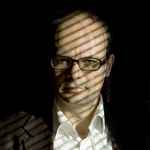Study programme
Programme structure
The Master's programme in Spirituality and religion comprises 60 ECTS credits.
-
Spirituality and Religion: Theories, Concepts, and MethodsPeriod 16
-
Spirituality and Religion: Lived PracticesPeriod 36
-
Electives within an area of specialisationPeriod 1Period 2Period 3Period 4Period 5Period 630
-
Master's Thesis Religious StudiesPeriod 4Period 5Period 618
-
Core courses
All students take the following two core courses during their first semester:
- Spirituality and Religion: Theories, Concepts, and Methods (6 ECTS)
This course provides an introduction to the most important concepts, debates, methods, and theories in the academic study of religion, and devotes particular attention to the relationship between religion and spirituality. Chief focuses are the relevant terminologies in this field of study, scholarly discussions about “Western” perspectives on religion/spirituality, the relation between institutional and doctrinal forms of "religion" and more individual and praxis-oriented types of “spirituality”, the importance in this context of apologetics and polemics, and how to combine interdisciplinary approaches with methodologies specific to (intellectual) history, the social sciences, and the study of literature, the arts, and popular culture. - Spirituality and Religion: Lived Practices (6 ECTS)
This course tackles the subject of spirituality and religion in its multiform complexity and focuses on understanding the social dimensions of religion and spirituality through developing concrete links between scholarly literature and the direct, hands-on study of existing religious phenomena. Students are encouraged to critically assess key scholarly debates, select appropriate methods to fit their research questions, and learn through practice the application of relevant qualitative methods.
- Spirituality and Religion: Theories, Concepts, and Methods (6 ECTS)
-
Areas of specialisation
Apart from the core courses, you select a number of electives based on the following areas of specialisation:
Esotericism and Spirituality in Western Culture
In the elective courses for this area of specialisation, you will receive a comprehensive historical overview from Antiquity, through the Middle Ages and the Early Modern Period, up until the present day. You will learn about the most important currents, movements and authors in the history of Western esotericism, from neo-Platonism and Hermetism to contemporary Paganism, Occulture, and the New Age; from ancient Gnostic sects to modern Theosophy and contemporary initiatory groups; from Plotinus to Rudolf Steiner and Aleister Crowley. This area of specialisation is based on the unique expertise in the field of Western esotericism of the Centre for the History of Hermetic Philosophy and Related Currents (HHP), the world-leading institute in the field.You will follow courses offered by the HHP Centre. You will also have access to extraordinary resources such as the collections of the University Library (eg, the Bibliotheca Rosenthaliana and the state-owned part of the Ritman collection), the Embassy of the Free Mind (formerly known as Bibliotheca Philosophica Hermetica, or Ritman Library), and the library of the Theosophical Society in the Netherlands.
Religion and Spirituality in Contemporary Societies
In this area of specialisation, you will focus on the role of religion and spirituality in our rapidly evolving societies. We pay particular attention to religious practices and experiences (“Lived Religion”) and to the interactions between the religious and the secular through the lens of spirituality. How do religious people construct and experience religion and which actions result from it? How do they organise themselves and how do they become public? How do they operate in secular societies?This specialisation focuses not only on spirituality in the Abrahamic religions, but also on Eastern religions in the West, religions of immigrants, new religions and aspects of non-religion.
Islam: Religion and Spirituality
In this specialisation you will investigate the historical and contemporary forms of interplay between religion and spirituality in Islam. A major focus of this specialisation lies on the transformations Islam has gone through in the modern and contemporary globalised world, with significant attention being given to spiritual movements and groups that have been part of the complex phenomena of Sufism and Islamic mysticism. Attention is also devoted to gender and legal aspects of Islam from an anthropological perspective and to the development of contemporary forms of lived religion in urban contexts where Islam is a majority religion. -
Electives
Besides the core courses, students generally only take courses from within their area of specialisation. In consultation with the tutor, students may petition the Board of Examiners to include other electives within their programme.
-
Thesis
The Master’s thesis is an important part of the programme and it enables you to write an original work of research under the supervision of one of the staff members. The subject of the thesis must be mutually agreed upon by the student and the thesis supervisor.

We cannot understand transformations of society and culture without having a clear grasp of the fascinating relationship between spirituality and religion. Like two opposing forces they have shaped history and continue to play a major role today. No other tension has inspired human creativity over the centuries in the same way.Dr Marco Pasi
Studying full-time or part-time
You can study the Master’s in Spirituality and Religion on a part-time basis. This option allows you to follow a maximum of 30 EC per year (12-18 EC per semester). The courses are spread over two years. As a part-time student, you take the regular courses alongside the full-time students. Please consult the programme coordinator for an individual academic plan.
Credit transfer
Students who show exceptional promise during a regular or professional programme are encouraged to continue their studies in the two-year Research Master's programme Religious Studies. Once students are admitted to the research programme, they can transfer credits earned during their previous course of study towards their Research Master's degree. The Examinations Board determines which courses qualify for transfer.